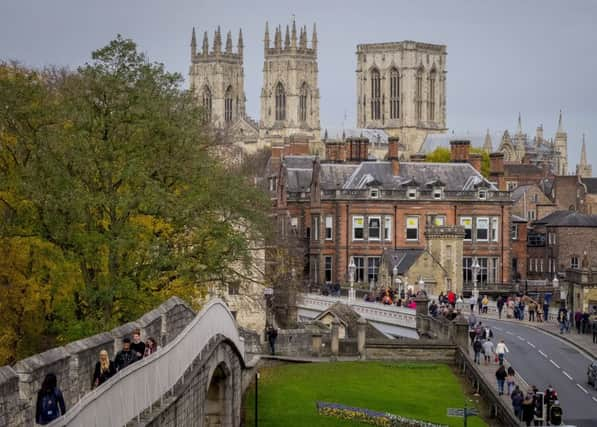Notre Dame warning as Brexit hits York Minster’s investments


The Minster’s income rose by nearly £750,000 last year to just under £10m, but expenditure also increased by more than £1m, the Chapter of York’s annual report reveals.
A project to refurbish the cathedral’s grand organ, whose 5,000 pipes are currently disassembled at a specialist facility in Durham, accounted for about half of the increased spending.
Advertisement
Hide AdAdvertisement
Hide AdBut the new Dean of York, Dr Jonathan Frost, said in his financial review that volatility on world markets last year had reduced the Minster’s assets – about half of which are held as property and some £20,000 as equity investments – by £1.6m to £49.3m, and that political instability caused by Brexit had made the investment market volatile.
“There is still uncertainty surrounding the full implications of Brexit and the financial risks associated with holding a significant amount of both equity and property investments,” his review cautions.
Dr Frost said: “I am in no doubt that tough financial management and tough decisions will be needed for years to come.
“The recent events at Notre Dame have heightened public interest in the care and protection of cathedral buildings in this country. English cathedrals and churches do not receive any regular funding from the state. Yet they continue to have a vital role in the lives of communities across the land and there is a public expectation that these buildings will endure and will be present at the most important points in people’s lives.
Advertisement
Hide AdAdvertisement
Hide Ad“As the current custodians of York Minster, our strategy is entirely focused on ensuring the financial health of the cathedral not just for today but for those who will follow on after us.”
The Minster ended the year with a surplus of £119,000, which, Dr Frost said, was “a good outcome”.
But he noted in his report that there was “a risk of over-reliance” on income from paying visitors, and that the Chapter of York was “lobbying various potential funding bodies to ensure that the need and impact of the Cathedral sector is more widely understood”.
The report also acknowledges that last year had been “difficult” for the Minster’s fee paying preparatory school, whose headmaster, Alex Donaldson, stepped down in November, seven months after being suspended when air rifles were found in the building. The action led to a demonstration by parents, who accused the Chapter of acting slowly and “without moderation, compassion or dignity”.
A review of the incident had concluded that “due process is important”, but so is speed”, Dr Frost said in his report.